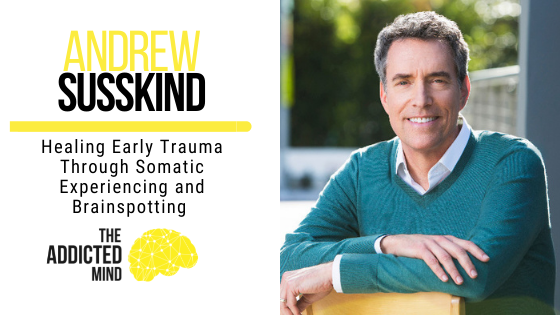We have to work and deal with our internal and early trauma. This can be more difficult to see and process without a reliable, trustworthy “other” in our lives. Sometimes it even takes an expert who can walk us through that journey in order for us to get to that safe space for healing and recovery.
Today, Duane talks with Andrew Susskind about his book, It’s Not About the Sex: Moving from Isolation to Intimacy after Sexual Addiction. They go into depth about attachment, emotional regulation, the need for reliable people to heal your traumatic wounds, and how we can do that when we’re in recovery and still struggling with internal chaos.
Andrew is a licensed clinical social worker, a Somatic Experiencing practitioner, a Brainspotting practitioner, and a certified group psychotherapist. The book is Andrew’s passion project where he wrote about themes that have been on his mind for three decades now. Since then, so much has changed in the mental health field as well as the addiction and trauma world. Andrew’s book reflects many of those changes.
Andrew not only leans on the experiences of his clients but on his personal experience as well. In 1994, Andrew went to his first SCA meeting, which stands for Sexual Compulsives Anonymous. In the therapy room, he noticed that people were learning how to stop their addictive behaviors. However, that’s just the starting gate. His book covers some themes and different areas of healing that can happen beyond stopping destructive behavior.
In this episode, you will hear:
- Somatic Experiencing and Brainspotting
- The mechanism behind our nervous system regulation
- The concept of upregulation vs. downregulation
- Why it’s not just about sex
- Having reliable relationships as a platform for healing
Key Quotes:
[06:57] – “Somatic Experiencing and Brainspotting are both trauma healing modalities that focus on Nervous System regulation.”
[07:40] – “One of the keys to regulating the nervous system is knowing when we’re dysregulated.”
[08:29] – “Someone who feels most comfortable in their skin feels calm, peaceful, grounded, and hopefully feels resourceful, resilient, and buoyant.”
[11:51] – “Even though it looks like compulsive sexual behavior, on the surface, once we scratch the surface, it’s really about broken-heartedness.”
[14:20] – “When someone is trying to regulate themselves, it’s actually an attempt to feel better.”
[17:49] – “If you scratch the surface on anyone who’s sexually compulsive, you’re going to find some kind of avoidant attachment within that.”
[23:08] – “If we’re connected within and to one another, and to something greater than ourselves, that’s going to create a platform for healing.”
Subscribe and Review
Have you subscribed to our podcast? We’d love for you to subscribe if you haven’t yet.
We’d love it even more if you could drop a review or 5-star rating over on Apple Podcasts. Simply select “Ratings and Reviews” and “Write a Review” then a quick line with your favorite part of the episode. It only takes a second and it helps spread the word about the podcast.
If you really enjoyed this episode, we’ve created a PDF that has all of the key information for you from the episode. Just fill in your information below to download it.
Supporting Resources:
It’s Not About the Sex: Moving from Isolation to Intimacy after Sexual Addiction by Andrew Susskindwww.Brainspotting.com

